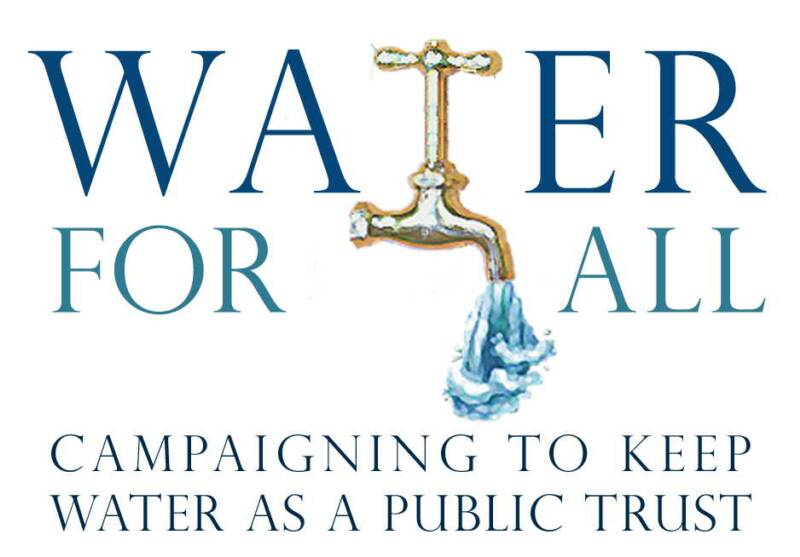Why Lee?
After big city plans go bust, Veolia targets small towns
Prepared by Hugh Jackson, Public Citizen’s Water for All Campaign, August 2004
http://www.citizen.org/cmep/Water/us/municipal/lee/articles.cfm?ID=12386
“US private firms prepared to abandon weak deals: Contract operators who had once competed fiercely for big city water and wastewater projects in North America may be throwing in the towel”—Global Water Intelligence, August, 2003.
That analysis from a leading water industry trade publication is even more true now than it was when written one year ago. Big international corporations like Veolia Water have all but walked away from their once-cherished U.S. strategy—winning new water and wastewater service contracts in large cities. Instead, they are going after small towns, in the cynical hope that community opposition will be less pronounced and local political leadership will be more easily manipulated.
But the lessons learned in cities serve as a dire warning to Lee and other smaller communities now being courted by Veolia.
Veolia’s ‘reduced concern’ in New Orleans—Effectively crushing Veolia’s big plans for big U.S. cities, New Orleans ended its flirtation with privatizing a combined water/wastewater operation in April 2004. The ill-fated process ran up a price tag of roughly $5 million over more than five years and a pair of mayors, and included months of scrutiny of publicly available bid proposals. After a public referendum requirement scared off most competitors (and unnerved Veolia, then called USFilter), Veolia was the last company standing, but city officials, labor and citizen groups, including representatives from the business community, never felt confident that the company’s bid reflected what it would actually cost to run the system—and so the savings promised by Veolia simply could not be trusted.
Meantime, Veolia was already operating the city’s wastewater system as a result of purchasing a company that won the contract in the 1990s. In 2002, the Black & Veatch consulting and engineering firm was asked to conduct an independent audit of wastewater system operations. The audit catalogued numerous environmental violations (29 discharge violations in 2001 alone), mechanical failures, clogged pipes and other problems. “Observation of these plants’ activities, as well as the serious problems reported above, indicate a reduced concern for operations and maintenance by the contractor,” Black and Veatch concluded. During the same period, staffers with the New Orleans Sewerage and Water Board made numerous, repeated and documented complaints about Veolia reducing staff to inadequate levels, neglecting preventive maintenance, failing to notify city officials of environmental violations, and other problems.
Indianapolis: With Success Like This…—Veolia typically points to Indianapolis as a privatization success story. Lee and especially Lee’s water and wastewater workers don’t need a success like this. Since Veolia landed the contract in 2002, non-union employees have seen their benefits slashed and the company made an aggressive move to reduce personnel costs—and personnel—through buying out veteran employees. Lawsuits have been filed complaining not only about the treatment of workers but also about the legality of the contract itself, and a coalition of Indianapolis citizens is aiming to nullify the contract and bring the system under public management. The National Labor Relations Board has issued 16 complaints against the company, and workers this spring were on the verge of a strike. That was averted when the employees essentially agreed to a two-tier benefits plan under which existing employees would get a pension plan, and new employees wouldn’t. Veolia has also been rapped by officials for allowing hydrants to freeze (perhaps in Veolia’s French homeland there are no fires in winter), and the company’s service has been marked by numerous billing errors and customer dissatisfaction.
Cynical, aren’t they? Veolia’s experience in smaller towns should provide little comfort to Lee residents. Angleton, Texas, terminated a contract with Veolia for non-performance, and took the company to court, charging it breached its contract by failing to maintain adequate staffing levels, not submitting capital project reports and charging improper expenses to the maintenance and repair tab picked up by the city. Of course, Massachussetts citizens have already seen a contract terminated in Rockland amid embezzlement charges involving a water department official and a company employee, and Lynn ended a wastewater overflow plant contract with Veolia because the company failed to stay adequately bonded for the project. Veolia also has made a recent stab at getting control of the water system in the Village of Hempstead, New York—as in Lee, with the help of influential local politicians. Privatization was being suggested by Hempstead’s mayor, who at the time was the president of the U.S. Conference of Mayors. Veolia sponsors the U.S. Conference of Mayor’s website. Amid widespread—and no doubt, to Veolia, unexpected—community opposition, a now-embarrassed mayor appears to have backed away from the controversial proposal.
Veolia clearly hopes that contracts will be easier to win in smaller towns, in the belief that it will be harder for wary residents to organize opposition to the company, and that it will be easier to curry close corporate ties with influential political leaders. Veolia’s emerging small-city strategy appears to be built on cynicism, disrespect and corporate arrogance. But the lessons of Veolia’s track record in larger cities are of central importance to smaller communities. If New Orleans, with teams of engineers, lawyers, accountants and other professionals on staff to monitor Veolia’s performance, can’t get timely, accurate information from the company, how hard will it be for a small town to watchdog the international conglomerate? If hundreds of employees in Indianapolis, many organized under a strong union, find themselves in a pitched battle with the company to preserve benefits and hold Veolia to its promises, can a few employees in a small town trust the multinational to keep its word?
Privatization is a risk for any community, and there’s reason to believe that the smaller the town, the bigger the risk.
